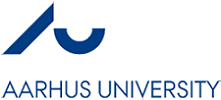Medicinal Chemistry

Winter intake start date
2026-02-01
Winter intake deadline
2024-10-10
Introduction
The MSc in Medicinal Chemistry is a two-year degree. The degree programme is open to students with a Bachelor’s degree in Medicinal Chemistry or a Bachelor of Science degree amounting to at least 60 ECTS credits in Medicinal Chemistry from universities and teaching institutions in Denmark and abroad.
The degree is a specialised chemistry degree with a focus on the interaction between chemistry and health sciences. The programme is taught in English, and you work, among other things, with the design of new potential drug substances and the synthesis of chemical compounds. For example, you have good opportunities to specialise in the influence of modern computer chemistry methods in the design of drugs; synthesis and analysis of potential new drugs; structure, activity and pharmacological properties of membrane proteins; the microscopic structure of bones and other bioorganic materials; and modelling of proteins and their interaction with drugs, drug delivery and chemical biology.
Career profile
Medicinal Chemistry graduates work across a wide range of fields and institutions. Most jobs, however, are within research, development and consultancy in both public and private sectors, particularly in pharmaceutical and biotech companies. The health services also employ many Medicinal Chemistry graduates, where for example they may be involved in developing new clinical and chemical diagnostic methods in hospitals. The skills acquired in the programme are also in great demand in the food industry.
Na studia magisterskie mogą kandydować wszyscy, którzy ukończyli studia licencjackie lub inżynierskie (studia I stopnia), studia magisterskie lub studiują na ostatnim roku studiów I-stopnia. Studia, które planujesz powinny mieć zbliżony profil do tych obecnych lub ukończonych, ponieważ w procesie rekrutacji kluczowa jest ich zgodność programowa.
Wykaz punktów ECTS – osoby, które są jeszcze w trakcie studiów, muszą załączyć wypis punktów ECTS, w którym będzie wykazane, jakie przedmioty były realizowane na studiach oraz ile punktów za nie otrzymano.
Dyplom ukończenia studiów licencjackich lub inżynierskich – jeśli jesteś absolwentem wyższej uczelni, nie potrzebujesz wypisu, wystarczy załączyć dyplom ukończenia studiów wraz z suplementem (w języku angielskim lub oryginał z tłumaczeniem)
Course description - należy przygotować dokument, zbierający cały sylabus ze studiów licencjackich. Takie sylabusy najczęściej są do pobrania na stronie uniwersytetu. Należy je przetłumaczyć na język angielski (można samodzielnie) i złączyć w jeden dokument. Warto też zapytać w dziekanacie uczelni, czy nie dysponują wersją angielską.
Oficjalna skala oceniania Twojej uczelni - możesz dostać taki dokument w dziekanacie Twojej uczelni lub skonstruować samodzielnie. W obu przypadkach dokument powinien zawierać pieczątkę dziekanatu.
Spełnienie wymagań w zakresie języka angielskiego można udokumentować w jeden z następujących sposobów:
IELTS – 6.5
TOEFL – 83 (Aarhus University TOEFL kod - 8935)
Uwaga: wymagania językowe mogą ulec zmianie. Przed wysłaniem aplikacji upewnij się jakie są wymagania językowe na konkretny kierunek bezpośrednio na stronie uczelni.
W przypadku zdawania certyfikatu IELTs upewnij się, czy uczelnia oprócz wymagań oceny końcowej nie ma również wymagań odnośnie ocen cząstkowych.
You can be admitted to the master's programme if the university assesses that your education has a level, scope, and content that corresponds to the academic requirements specified below.
| Subject area | Number of ECTS |
60 ECTS distributed among the following topics:
| 60 |
